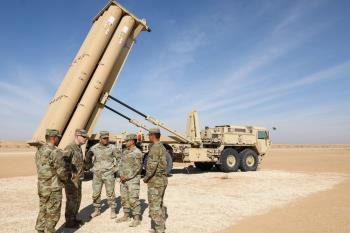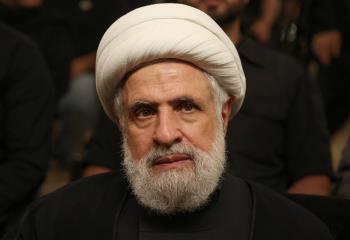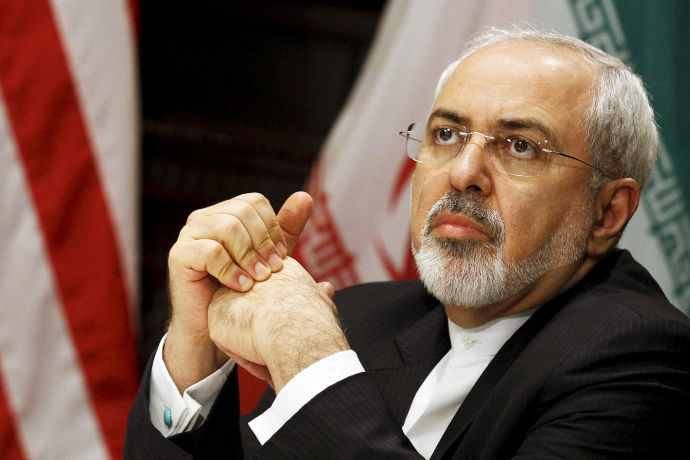Alwaght- Iran's Foreign Minister, Mohammad Javad Zarif, slammed the US for falling short of its commitments as well as its interventionist policy towards the West Asian country.
In an interview The New Yorker, Iranian Foreign Minister discussed various sticking points in relations between Washington and Tehran.
Explaining about the problems encountering the Joint Comprehensive Plan of Action, the international nuclear deal, Mohammad Javad Zarif said "The most important problem is that the United States is taking a back seat after eight years of scaring everybody off, imposing heavy penalties on people who wanted to do business with Iran. Billions of dollars of penalties were imposed on various European financial institutions. The United States was supposed to go to various banks and tell them bygones are bygones".
He also claimed that European banks refuse doing business with Iran because they are afraid of US retaliation.
" As we implemented our obligations fully, we are entitled to benefit fully. The United States needs to do way more. They have to send a message that doing business with Iran will not cost them. Period. No ifs and buts".
Iranian top diplomat threatened that "if one side does not comply with the agreement then the agreement will start to falter".
"International regimes, international treaties, international norms are observed not because of the goodness of anybody but because they bring benefits. If they don’t, then the longevity of those agreements come into jeopardy".
Being asked whether a Democrat or a Republican president, is likely to mean for the future of a process that was started during the Obama Administration, Mr. Zarif explained: "The future Presidents of both Iran and the United States will see it [Nuclear Deal] is in their interest to safeguard it and to make sure that it continues, because we believe it’s a good deal. We believe it’s a deal that is in the interest of both sides and in the interest of the international community. We believe that, once it is fully implemented, everybody will see the beneficial side effects or spillovers in other areas".
Iranian FM also cited the country's supreme Leader, Ayatollah Ali Khamenei, as saying that there is a chance of change in Iran-US Relations only if the experience of the nuclear negotiations proves that the US is changing its approach toward Iran that is based on mutual respect and interests
"But if the US wants to continue with its hostile policies, then we will have to stick with the nuclear deal and try to basically keep it alive and functioning. The nuclear deal could still be the base and not the ceiling. But it requires positive political will on the side of the United US to stop this whole practice of simply repeating the old, outdated lines when it comes to Iran," he added.
Mr. Zarif further went on saying that there is no doubt that Islamic Republic of Iran is implementing the J.C.P.O.A , nuclear deal, as he stressed that "almost every Iranian official believes that the US hasn’t implemented it."
"We have a saying in Farsi: “First, prove your brotherhood, and then ask for inheritance.” So you’ve got to prove your brotherhood first, or sisterhood, and then we talk about the inheritance. The dividends of a successful implementation of the nuclear agreement will come, but once it is successfully implemented".
In reaction to the US Supreme Court Decision, that rules Iran's Central Bank has to pay two billion dollars to victims of acts linked to Iran, particularly the 1983 bombing of Marine barracks in Beirut, top Iranian diplomat said " By U.S. courts, who are also holding Iran responsible for 9/11! I have lost every respect for U.S. justice. The judgment by the Supreme Court and the other, even more absurd judgment by a New York circuit court deciding that Iran should pay damages for 9/11 are the height of absurdity. How would you explain Iran being held accountable for the damages to the victims of 9/11—and others being absolved of any responsibility, those who were actually responsible for it?
These cases cannot stand in any serious civilized court of law. When a U.S. court condemns Iran for 9/11, it finishes the credibility of the U.S. justice system when it comes to Iran."
"People can legislate in other countries to confiscate American assets. Would you be happy with that? The United States has committed a lot of crimes against Iranians, against the people of Vietnam, the people of Afghanistan, the people of Iraq. Can they legislate in their own countries that for every collateral damage suffered because of American bombing, for every person who was tortured by the Savak [previous Us-backed regime's intelligence agency], which was created by the United States, those people can claim money from the United States and go confiscate it? Would you be willing to accept it? So why should we accept the Supreme Court ruling? The Supreme Court is the Supreme Court of the United States, not the Supreme Court of the world. We’re not under its jurisdiction, nor is our money," Zarif explained
"It is a theft. Huge theft. It is highway robbery. And believe you me, we will get it back."
Mr. Zarif also fiercely criticized the US for meddling in his country's domestic affairs including missile tests.
"That’s the problem with the United States. It believes it can control everybody’s behavior. The missile tests are our right. We have made it very clear that these will not be used other than in self-defense. They’re not designed to be capable of carrying nuclear weapons.
What do you expect, Iran to lie dead? You’ve covered the Iran–Iraq war, you remember missiles pouring on Iranian cities with chemical weapons. You remember that we didn’t have any to defend ourselves. Let’s not reopen that chapter. Everybody who is accusing Iran of provocation because of our missile tests should make the simple statement that I have made, that our Revolutionary Guard commanders have made—that Iran will never attack any other country. Pure and simple. By the way, that’s the legal obligation of every country, to say that.
Here I think you owe us. U.S. planes were giving Saddam Hussein intelligence to hit our civilians with chemical weapons. We don’t owe anybody anything on defense."
Mhoammad Javad Zarif also ruled out any round of negotiations over the country's missile program.
"We had two and a half years of negotiations, and we made it very clear, time and again, that our defense is not subject to bargaining. We spend a fraction of what all your allies in the region spend on defense. We have a much bigger country and a much larger population to defend. What is the population of the United Arab Emirates? How much do they spend on defense? I mean, get real. Our entire defense budget is between ten and fifteen billion dollars."
Touching on Iran's regional policy, Zarif emphasized that The region is the country's No. 1 priority.
"We wanted to take every opportunity to work with our Persian Gulf neighbors. We have presented, both publicly and privately, proposals for engagement and dialogue. Unfortunately, they have fallen on deaf ears. Primarily by Saudi Arabia.
It’s not that there needs to be tension. We started exercising restraint a long time ago, when they supported Saddam Hussein for eight years, and then he turned and attacked them. Over the past two and a half years, when we were engaged in the nuclear negotiations, the Saudis did everything to undermine those negotiations, glutting the oil markets, and we exercised restraint. There’s a limit."
On Syria, he also explained that "We had every hope for the peace talks. We need to not put the cart before the horse, and we need to go ahead with the negotiations and then, in the course of the negotiations, decide the future of Syria."
"Everybody knew that this was a process that would take eighteen months—and at the end of eighteen months the Syrians would decide how to conduct the elections," Zarif made it clear about government Transition in the war-torn country,
"The Syrians haven’t yet decided what type of constitution they will have, whether it will be a Presidential system, whether it will be a parliamentary system. If you have a parliamentary system, you’re just debating an irrelevant issue, because in a parliamentary system the role of the President becomes minuscule. So why are we trying to find an excuse to continue fighting if what we’re fighting over right now may become immaterial in a year’s time?"
"We believe that his future is in the hands of the Syrian people, not in our hands. I think he’s happy putting his future in the hands of the Syrian people."
According to The New Yorker, In June, as international cartoon biennial, with the theme of Holocust is scheduled to be held in Iran and the theme is the Holocaust. Being asked why does Iran allow a cartoon festival on the Holocaust, Mohammad Javad Zarif replied "Why does the US have the Ku Klux Klan? Is the government of the United States responsible for the fact that there are racially hateful organizations in the United States? Don’t consider Iran a monolith. The Iranian government does not support, nor does it organize, any cartoon festival of the nature that you’re talking about. When you stop your own organizations from doing things, then you can ask others to do likewise."



























